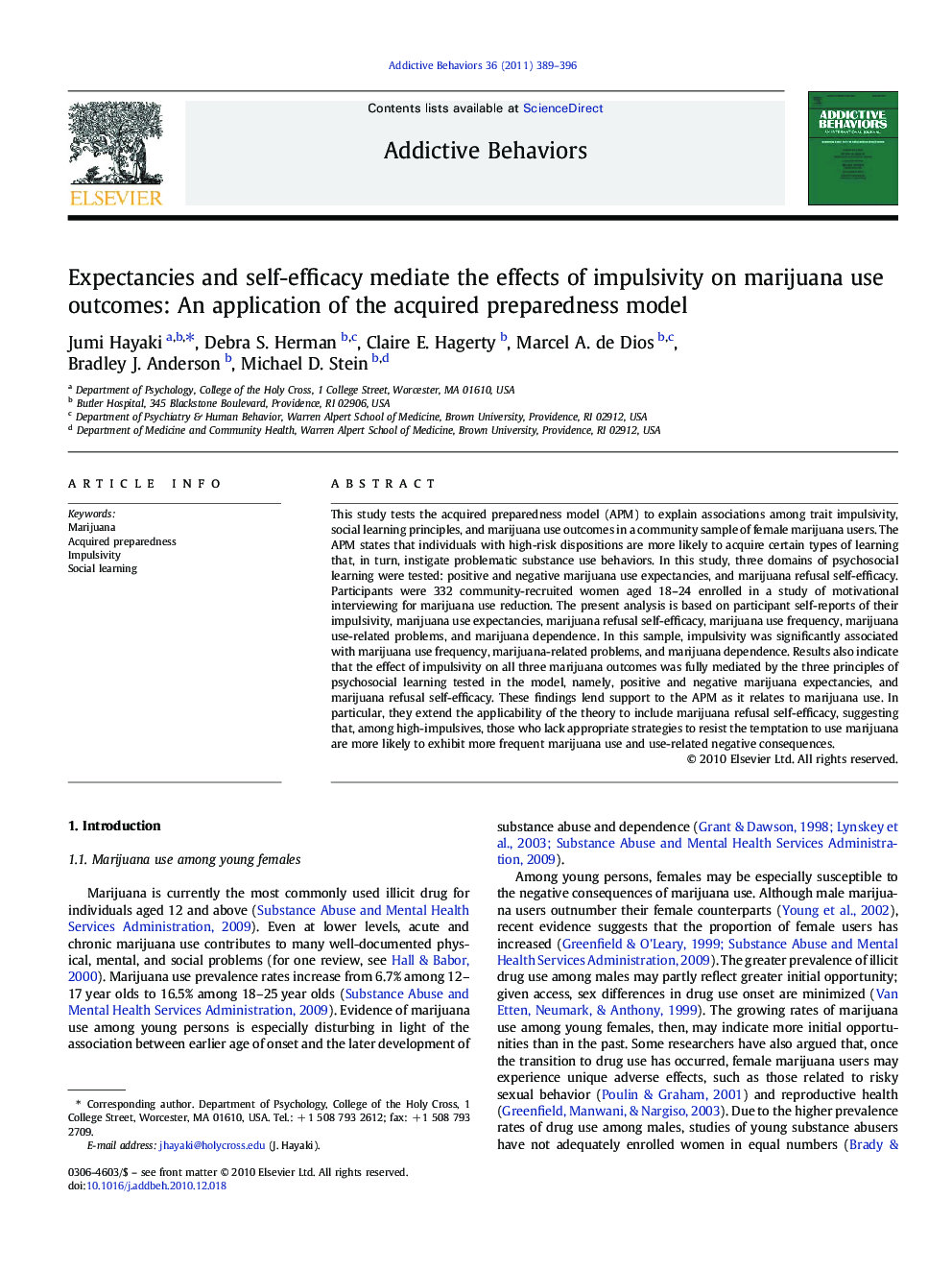| کد مقاله | کد نشریه | سال انتشار | مقاله انگلیسی | نسخه تمام متن |
|---|---|---|---|---|
| 899246 | 915368 | 2011 | 8 صفحه PDF | دانلود رایگان |

This study tests the acquired preparedness model (APM) to explain associations among trait impulsivity, social learning principles, and marijuana use outcomes in a community sample of female marijuana users. The APM states that individuals with high-risk dispositions are more likely to acquire certain types of learning that, in turn, instigate problematic substance use behaviors. In this study, three domains of psychosocial learning were tested: positive and negative marijuana use expectancies, and marijuana refusal self-efficacy. Participants were 332 community-recruited women aged 18–24 enrolled in a study of motivational interviewing for marijuana use reduction. The present analysis is based on participant self-reports of their impulsivity, marijuana use expectancies, marijuana refusal self-efficacy, marijuana use frequency, marijuana use-related problems, and marijuana dependence. In this sample, impulsivity was significantly associated with marijuana use frequency, marijuana-related problems, and marijuana dependence. Results also indicate that the effect of impulsivity on all three marijuana outcomes was fully mediated by the three principles of psychosocial learning tested in the model, namely, positive and negative marijuana expectancies, and marijuana refusal self-efficacy. These findings lend support to the APM as it relates to marijuana use. In particular, they extend the applicability of the theory to include marijuana refusal self-efficacy, suggesting that, among high-impulsives, those who lack appropriate strategies to resist the temptation to use marijuana are more likely to exhibit more frequent marijuana use and use-related negative consequences.
Research Highlights
► Impulsivity predicted marijuana use outcomes in young female users.
► Social learning mediated the effect of impulsivity on these marijuana use outcomes.
► Identified mediators were marijuana use expectancies and refusal self-efficacy.
► Tested marijuana outcomes were use frequency, perceived problems, and dependence.
► The acquired preparedness model applies to marijuana use among young females.
Journal: Addictive Behaviors - Volume 36, Issue 4, April 2011, Pages 389–396